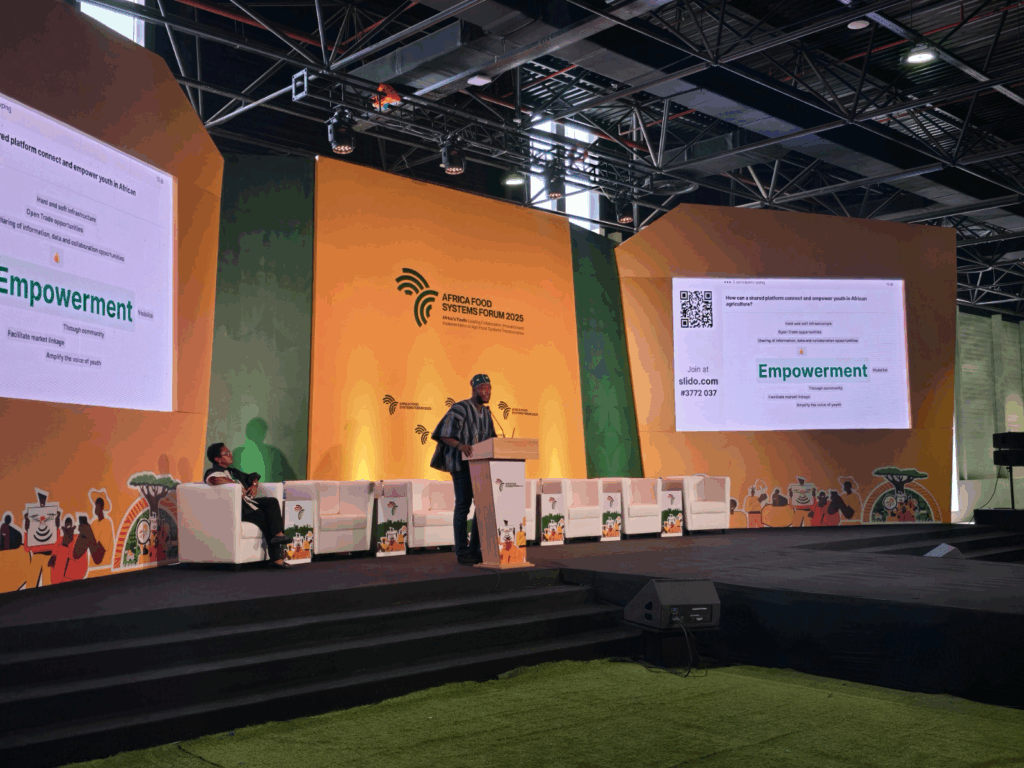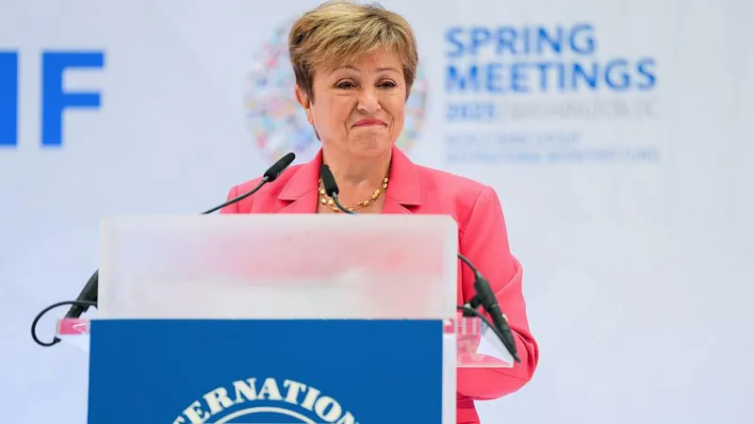At the Africa Food Systems Forum (AFSF) in Dakar, Dr. Iddi Mohammed Faried, co-founder and CEO of the Ghanaian startup Kodu Technology, called on African leaders to significantly increase investment in youth-led innovations to spur growth in the continent’s agribusiness sector.
Dr. Faried emphasized the need for financial support, mentorship, and growth pathways, as well as practical education that extends beyond theory and promotes innovation labs, apprenticeships, and entrepreneurship. He also urged that young people be included in policy discussions not merely as symbols but as genuine actors shaping Africa’s food systems. 
The 2025 Africa Food Systems Forum, organized annually by AGRA, is a leading continental platform for dialogue and action on transforming food systems. Under the theme “Africa’s Youth Leading Collaboration, Innovation, and Implementation of Agri-Food Systems Transformation,” the event drew over 6,000 participants from more than 113 countries, running from 31 August to 5 September 2025.
Dr. Faried offered a broader perspective on transforming food systems: it’s not just about increasing crop yields, but reimagining resource use, aligning agriculture with human needs, and motivating youth to turn challenges into opportunities.
He highlighted Kodu Technology’s social-impact mission—the startup transforms banana and plantain waste into affordable, eco-friendly sanitary pads, thereby promoting the dignity of young women and elevating smallholder farmers’ incomes. This initiative emerged after engagement with young women in Ghana’s Northern Region, many of whom missed school due to a lack of sanitary products. The company’s sanitary pads are certified by Ghana Standards Authority and the Food and Drug Authority.
Dr. Faried noted that over 60% of Africa’s population is under 25, and that young Africans view waste as raw material for innovation. He pointed to numerous examples across Africa where youth are building apps to connect farmers to markets, processing crops into higher-value products, advancing climate-smart agriculture, and repurposing waste into usable goods. His central call: “Don’t ask whether young people are ready; they are proving it every day. Instead, ask if we—leaders, investors, and institutions—are ready to support, trust, and grant space for youth to lead food-system transformation.”
Ms. Wambui Chege, Director of Agri-food Systems at the Mastercard Foundation, also spoke at the forum. She affirmed that each year, around 10 million young people enter the workforce in Africa, presenting a major opportunity, and stressed that agriculture provides scalable pathways to entrepreneurship. She praised initiatives like Kodu Technology, stating that they are creating jobs, reshaping value chains, and leading change rather than waiting for it.
Senegal’s Minister for Agriculture and Livestock, Mabouba Diagne, encouraged young people to take advantage of available opportunities, affirming that with the right mindset, skills, and support, youth can become a catalyst for agricultural growth across the continent.



















0 Comments